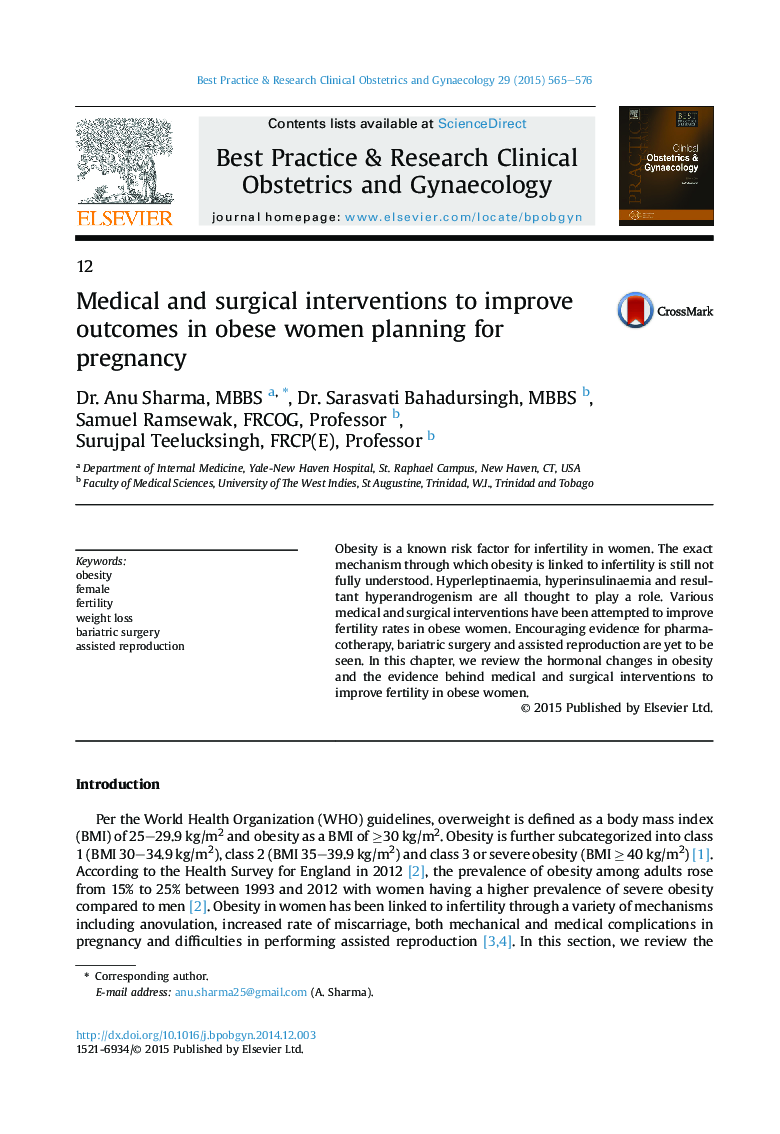| Article ID | Journal | Published Year | Pages | File Type |
|---|---|---|---|---|
| 3907247 | Best Practice & Research Clinical Obstetrics & Gynaecology | 2015 | 12 Pages |
•The risk of infertility is three times higher in obese women.•Obesity is a hyperleptinaemic, hyperinsulinaemic state with resultant hyperandrogenism.•Pharmacotherapy has failed to show consistent improvement in obesity-associated fertility.•Robust data supporting the improvement of fertility by surgically induced weight loss are lacking.•Assisted reproduction has higher failure rates in obese women.
Obesity is a known risk factor for infertility in women. The exact mechanism through which obesity is linked to infertility is still not fully understood. Hyperleptinaemia, hyperinsulinaemia and resultant hyperandrogenism are all thought to play a role. Various medical and surgical interventions have been attempted to improve fertility rates in obese women. Encouraging evidence for pharmacotherapy, bariatric surgery and assisted reproduction are yet to be seen. In this chapter, we review the hormonal changes in obesity and the evidence behind medical and surgical interventions to improve fertility in obese women.
